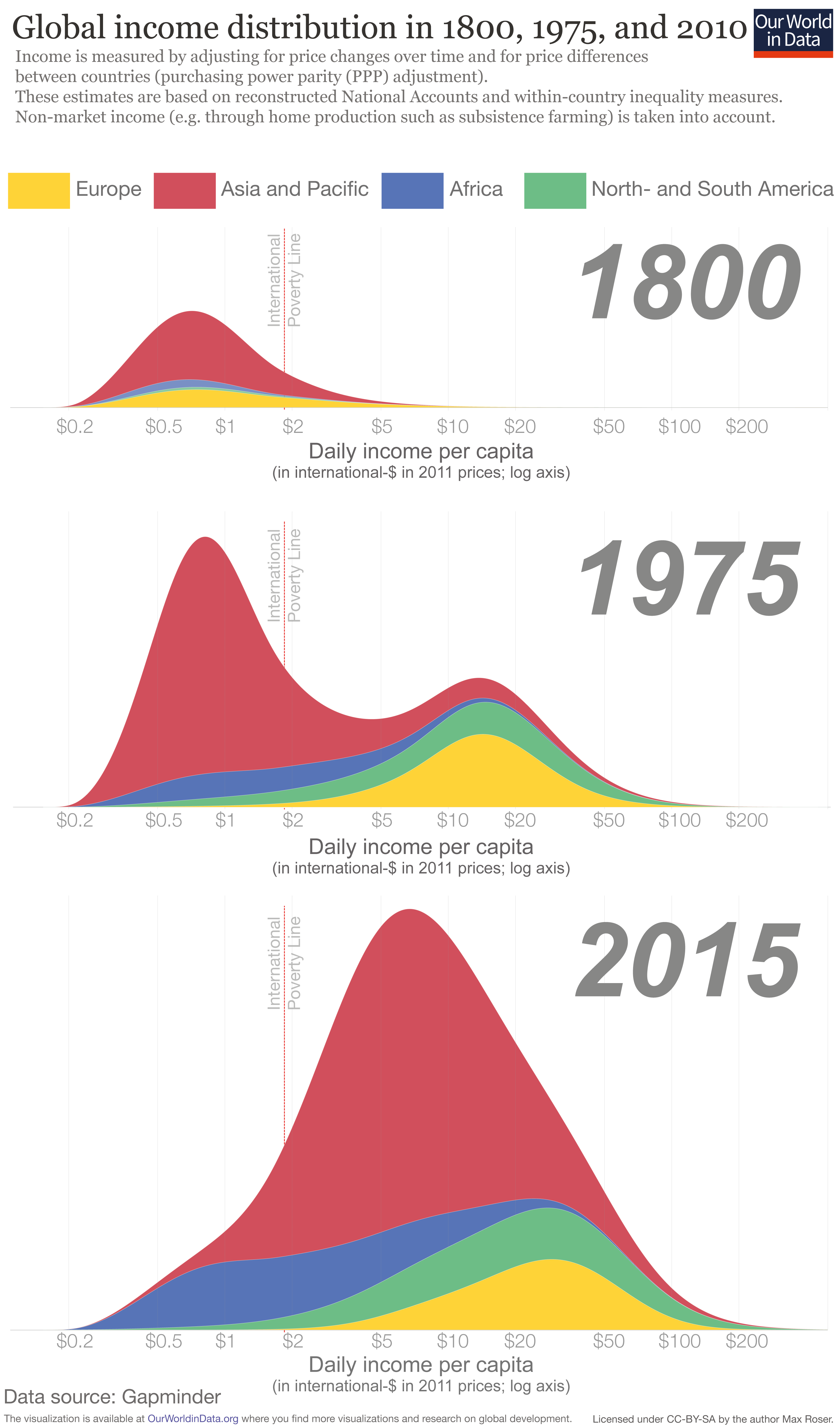Factfulness, Ten reasons we’re wrong about the world – and why things are better than you think
by Hans Rosling (with Ola Rosling and Anna Rosling Rönnlund)
Hans Rosling is the person who introduced me to Ted Talks, with this classic talk on visualising the world through statistics. I’ve used it a few times with various teams helping them understand how much of a difference the way you communicate numbers can make (plus I always love some great demography).
This book is Hans Rosling’s final work, written as a collaboration with his son and daughter in law after he was diagnosed with pancreatic cancer, and finished by them after Hans died in 2017. Despite the sad circumstances of its writing it is a paean of optimism about the world, and how much better the lot of the whole population of the world is getting and has become, since Rosling was born in 1948. Although the book is the work of three people, it is written in Hans Rosling’s “voice”, which makes sense given every speech he wrote was a collaboration, so his voice is as much his collaborators’ voice as his own.

Factfulness is a combination of fascinating information about the world, combined with ways of avoiding traps that make all of us much more negative about the world than we really should be. The main device is a series of quizzes about the world, to make you realise that the world has changed, and particularly the lives of people in the world, have changed overwhelmingly for the better in the last 200 years. Most people do worse than randomly on these quizzes, until they realise that to get the right answer, you should choose the most positive answer. For example:
What is the life expectancy of the world today?
- 50 years
- 60 years
- 70 years
The correct answer is 70 years, which was more than the life expectancy in New Zealand (63), when my father was born. It is amazing to me that the whole world is now on average significantly healthier than New Zealanders were 85 years ago.
There are many different ways in which people who are interested in the world can misunderstand it, and have negative views about what is really happening. The one that most resonated with me was Rosling’s first chapter on what he calls the Gap Instinct. Many people understand the world as being in two groups – the poor and the rich. But as the graph below shows, that may have been true in 1975, but it really isn’t true now.

There are many different ways of defining those groups, but “developing countries” and “developed countries are often the words used. But the truth is much more complex, and often there is a wide range within countries as well as between them. The best illustration of this point is the website the team developed called Dollar Street, which shows pictures of how people live around the world ranked by income (and classified by country, if you are interested). It shows how similarly people live by income, almost regardless if which continent they live in. Rather than thinking of the world as divided into the haves and have-nots, gradually the poorer people in the world are moving up to levels of affluence that are within living memory of many people in the richest parts.

Rosling divides the world instead into four income levels, and persuasively argues that this way of thinking about people is a much more useful way of understanding the world and its development. Only the poorest billion in the world are in Level 1, where (for example) water needs to be fetched from a distance, and the only food you have day-to-day is the same porridge type substance you have every day. Level 4 is where you are if you are reading this blog post – you have hot and cold running water in your house, electricity, you can eat out every now and again, and you have a variety of food to eat. You also have access to high school education and probably a car if you need one. The richest billion people in the world are in Level 4.
I travel a lot and this section made a lot of sense to me – while I have travelled to a place where people lived a “Level 1” life (for example in Tanzania I visited a Masai village where the people had to walk many kilometres to get water) in most places I go, even poorer countries, the people I see are in Level 2 and Level 3 (for example the people living in this photo in Vietnam are probably somewhere between Level 2 and 3).
The book has ten reasons why most people are wrong about the world, some of which are interconnected, but all are thought-provoking. What Rosling calls the Gap instinct (the human instinct to divide anything into us and them) is probably the most dramatic. The other major way in which we make mistakes about the world is in believing that negative parts of the world just can’t change. Rosling gives the example of a fund manager who just refused to believe that people in Nigeria would ever be rich enough to be worth thinking about for the companies he invests in. But if you look closely at Nigeria, per capita income (corrected for inflation) has increased from around $850 per annum per person to $5,500 per annum per person over the last 200 years. That’s not European level affluence, but there are enough people with money to make a real consumer market.
As Rosling points out, it is possible to believe both that the world needs to improve, and that it has improved by a long way to get to where we are now. This is an overwhelmingly optimistic book, and a delight to read.


My daughter bought this book for me at the weekend and I agree with you Jennifer: this is a delight to read and one can really ”hear” Hans’ infectious enthusiasm.
What a coincidence, Kate, my son bought the book for me, too (although it has taken me a while to get around to reviewing it)! Good to see they know us so well. Nice to hear from you, and you probably recognise one of the photos in the post.
I like the way you write reviews. Though I
thought the subject is not for me, I
enjoyed it very much – thanks.
Keep finding interesting books,